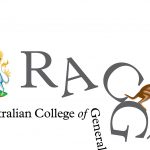Lawyers for a group of affected trainees say they have ‘a strong case’ against the college over the exam failures.
Lawyers for registrars let down by the RACGP remote fellowship exam process have written to the college demanding a full apology and financial compensation in addition to fee reimbursement.
The letter from Gardner Legal and Regulatory says the clients – a group of affected registrars represented by Australian Health Practitioners Advisory Solutions (AHPAS), which hired the lawyers – do not want to bring legal proceedings, but are prepared to do so.
“Like any sensible litigant, they would greatly prefer to work with the RACGP than oppose it in a Court,” the 27 October letter says.
“However, our clients consider they have a strong case against the RACGP with respect to the loss it has caused them. If the RACGP is not willing to attempt to negotiate and resolve the matter, we expect to receive instructions to bring proceedings against the RACGP in respect of the above without further delay.”
The letter to RACGP CEO Dr Matthew Miles is from the firm’s director David Gardner, who represented Dr Anchita Karmakar in her case against the Professional Services Review. Dr Karmakar, whose Federal Court hearing has been delayed by COVID-19, is now CEO of AHPAS, an advocacy and educational network.
Dr Miles told TMR: “The RACGP has received a letter from Gardner Legal & Regulatory, which acts for a group of GP registrars concerning the failure to deliver the recent KFP and AKT. We have acknowledged receipt of the letter and intend to provide a more detailed response. The letter has also been provided to our insurer, Zurich.
“I acknowledge how frustrating the experience has been for candidates, their families and those who have supported their exam preparation.”
Over six pages, Mr Gardner sets out the “significant harm” caused to the registrars who were due to sit the remote KFP and AKT exams on 9-10 October that had to be cancelled after the failure of the online platform.
“Having deliberately placed itself in the position of gatekeeper of the specialty,” Mr Gardner writes, “the RACGP owes a duty to those who are training to become general practitioners under its programs to ensure that it delivers the pathways to Fellowship that it promises.”
Many of the candidates had tenuous employment arrangements or had visas dependent on their achieving fellowship. Many had taken significant time off from both work and family life to study.
Stressful experiences on the day included being informed by proctors that the issues were their own fault; being updated by the college by text message when use of phones risked failing the exams; proctors appearing to respond from a script with no apparent comprehension of the situation; and proctors being rude or failing to communicate at all.
The RACGP had pushed ahead, the letter says, despite trial exams in which not only did the online system not work as it should, but the online proctors “communicated poorly and did not appear to understand English”.
The letter also outlines the trainees’ data security concerns, given they had to have their photos taken and share their photo IDs, names, dates of birth and addresses with people overseas – thought to be in The Philippines and India but this has never been confirmed.
“Given the entirely unsatisfactory way in which the foreign service provider operated, our clients also have grave concerns with respect to their personal information,” Mr Gardner writes.
His clients welcome “as a first step” the college’s pledges to reimburse the exam fees, provide a rerun that won’t count if failed and an additional exam cycle in which to complete the exam, and commission an independent investigation.
But in addition, “our clients require a genuine apology and explanation by the RACGP as to exactly what happened, including why it chose the online proctoring service that it did, and why it proceeded to use that service after it initially failed during the trial exams”.
They also seek compensation for financial losses, including lost income and expenses incurred to study and attend both the cancelled and the makeup exams, and lost income from delayed fellowship.
“The RACGP must also must immediately take steps to compensate them … and provide a clear pathway for claims for such loss to be made to the RACGP (without the need for proceedings against the RACGP to be issued in each case).”
Further, the college must satisfy them as to what happened to their data and what protections were in place; it must ensure flexibility on resitting exams; and it must find a way to fast-track affected international medical graduates to fellowship, given the “potentially catastrophic impact that delay may have” on them.
Registrars have told TMR that many candidates “have been pushed to the point of despair and some to the point of suicide, as families and relationships have broken down because of the RACGP’s failure, and yet they persist in charging expensive membership fees and offer nothing in return”.
They also say the promised refunds “have been slow to arrive”. The college told TMR that 80% of them had been processed.







